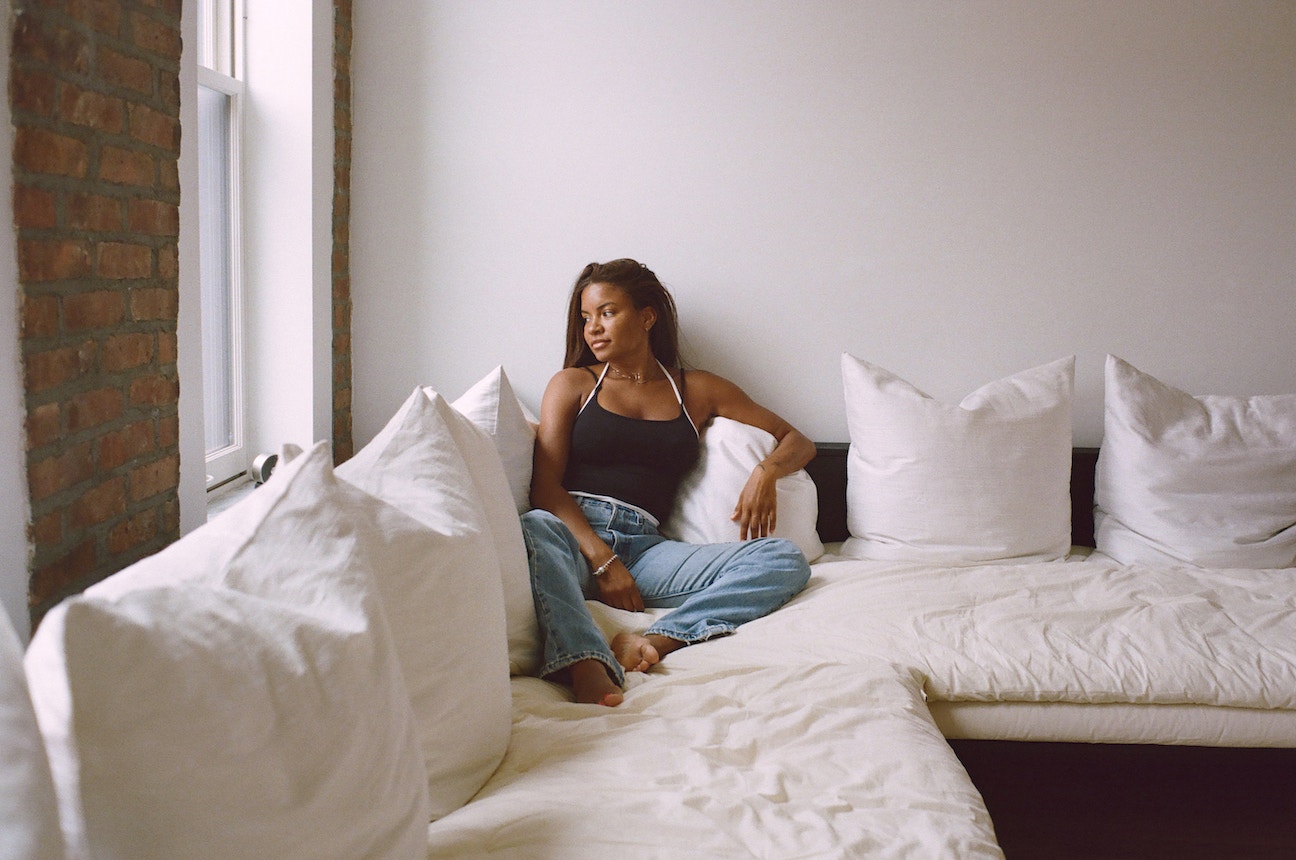
Getting Sticky With Kai Avent-deLeon
There’s a powerful line on Sanctuary’s website: “You are the medicine.” It’s the kind of sentiment that you’d receive from Kai Avent-deLeon like a warm hug, whose life’s work is rooted in healing, community, and intention. Whether through Sincerely, Tommy—a beloved lifestyle store and boutique hostel in Bed-Stuy—Building Black Bed-Stuy, an initiative providing financial relief to Black-owned businesses, or Sanctuary, the aforementioned community retreat and her most personal project yet, Kai has consistently created space for others to feel seen and supported.
Born in the city and raised upstate for eight years before returning to Brooklyn in elementary school, Kai’s mission has been to create third spaces at a time where we so desperately require them. “We need peace, healing, and tools that help us feel grounded and whole and good in our bodies,” she says. “There are so many distractions pulling us away from that.” That same ethos shapes how she parents her son, Ché. There’s an emphasis on connection over control, guidance over authority.
Below, Kai reflects on raising a boy into a man, the beauty and challenge of co-parenting while living apart, and what it means to mother intuitively.
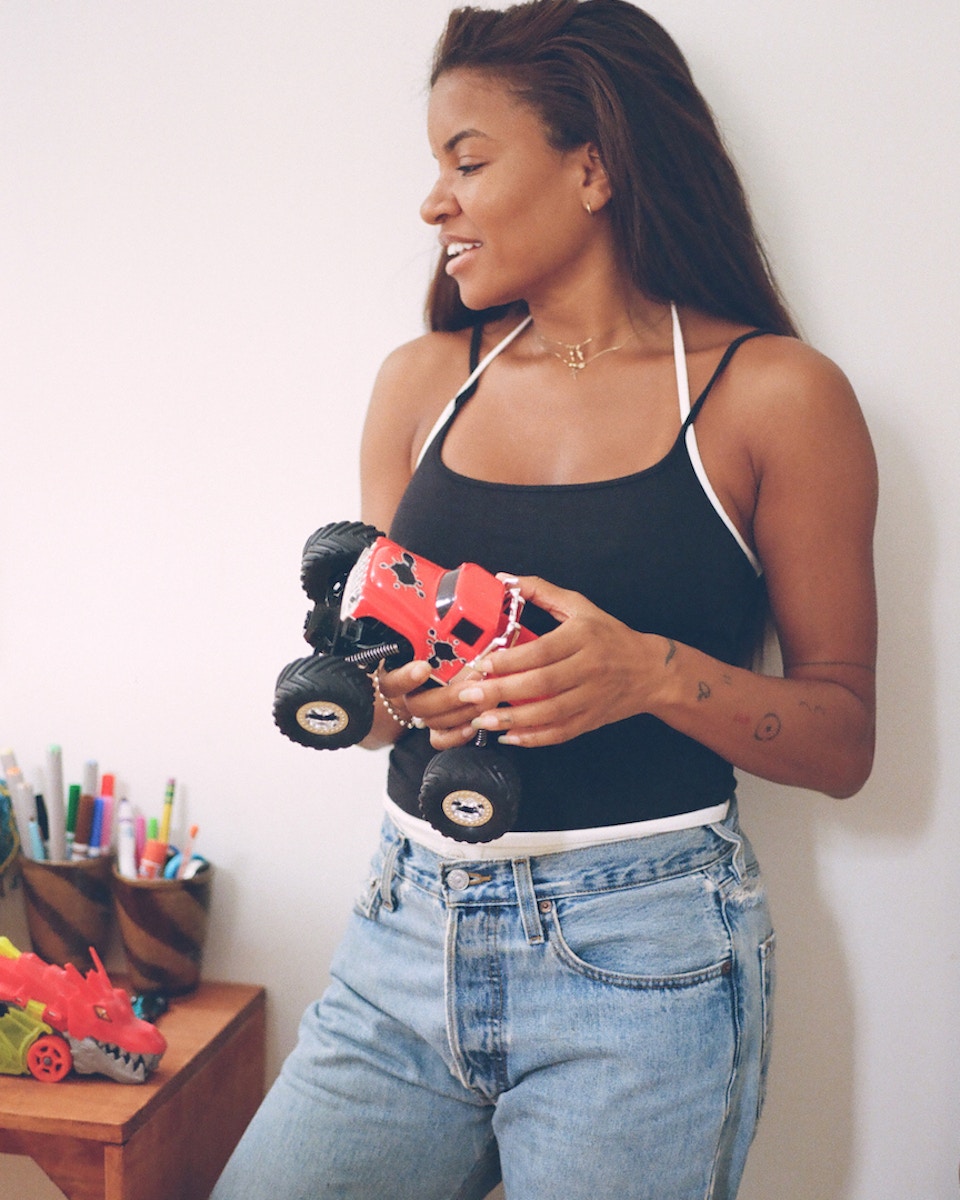
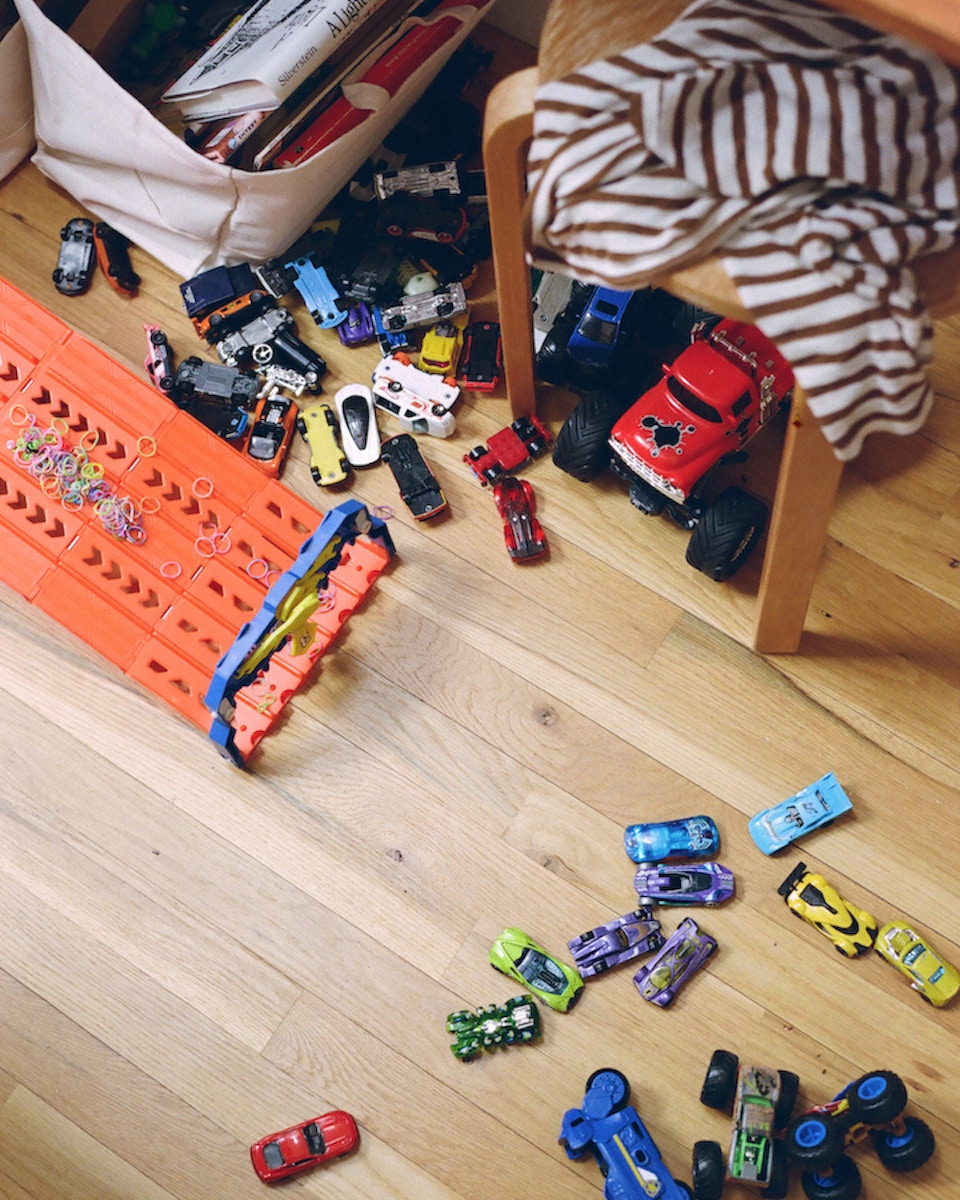
“How do I help this person navigate the world?”
I took an intuitive approach to motherhood. I didn't read any books. I look at it as: I'm going to be a guide for this child. I know what I don't want to do based on my own upbringing and things that I've seen, which is very helpful.
I've really taken that approach from the time he was a baby up until now. I'm his guide. I never want to impose too many of my ways of being or my beliefs onto him because essentially he's here to experience his own experience and figure out who he is. Obviously, if I see him doing something that is detrimental to him, I'm going to steer him clear.
But I think that approach overall has really allowed Ché to come into his own. He has such an interesting personality. He's very defiant and independent but also very sweet and kind of timid. It's been a huge mirror for me and I'm constantly learning, how do I help this person navigate the world?
Learning to un-learn
My parents are very introspective. They're always on the road to evolution and being more self-actualized. That's really influenced both how I parent. I take a lot of advice from my mom because she's extremely wise but there are other aspects of her personality where I think, I don’t really want to do that because it doesn’t align with who I am.
You start to see how you’ve picked up certain parts of your parents just because they’re your parents and those are the people you’ve been around most. As you get older, you realize their values may not reflect your own. It allows you to kind of sit and think, who am I? What do I actually embody? That’s what motherhood has been for me.
I’m not super strict the way my mom is. I am such a mush. I’m so emotional. I’m finally learning to feel comfortable embracing these aspects of me that didn’t always feel safe to display. And motherhood is being open to allowing that part of yourself, because you’re nurturing another human being.
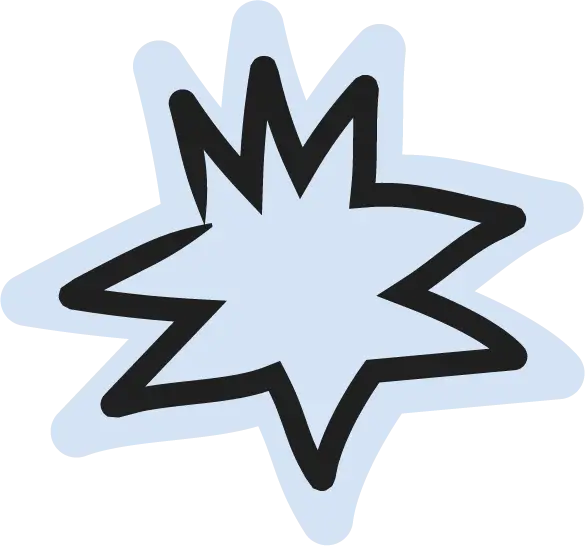
"You start to see how you’ve picked up certain parts of your parents just because they’re your parents and those are the people you’ve been around most. As you get older, you realize their values may not reflect your own. It allows you to kind of sit and think, who am I? What do I actually embody? That’s what motherhood has been for me."

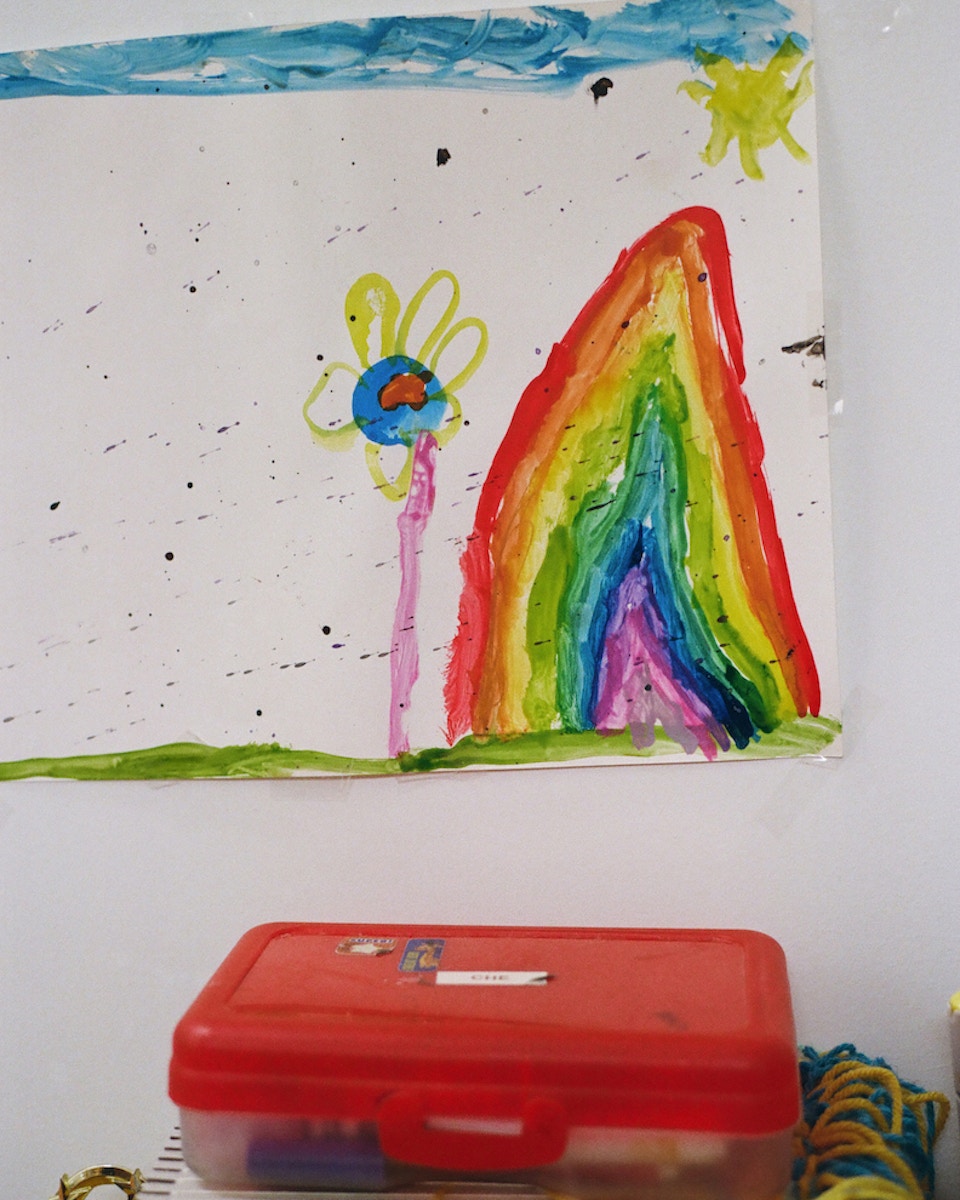
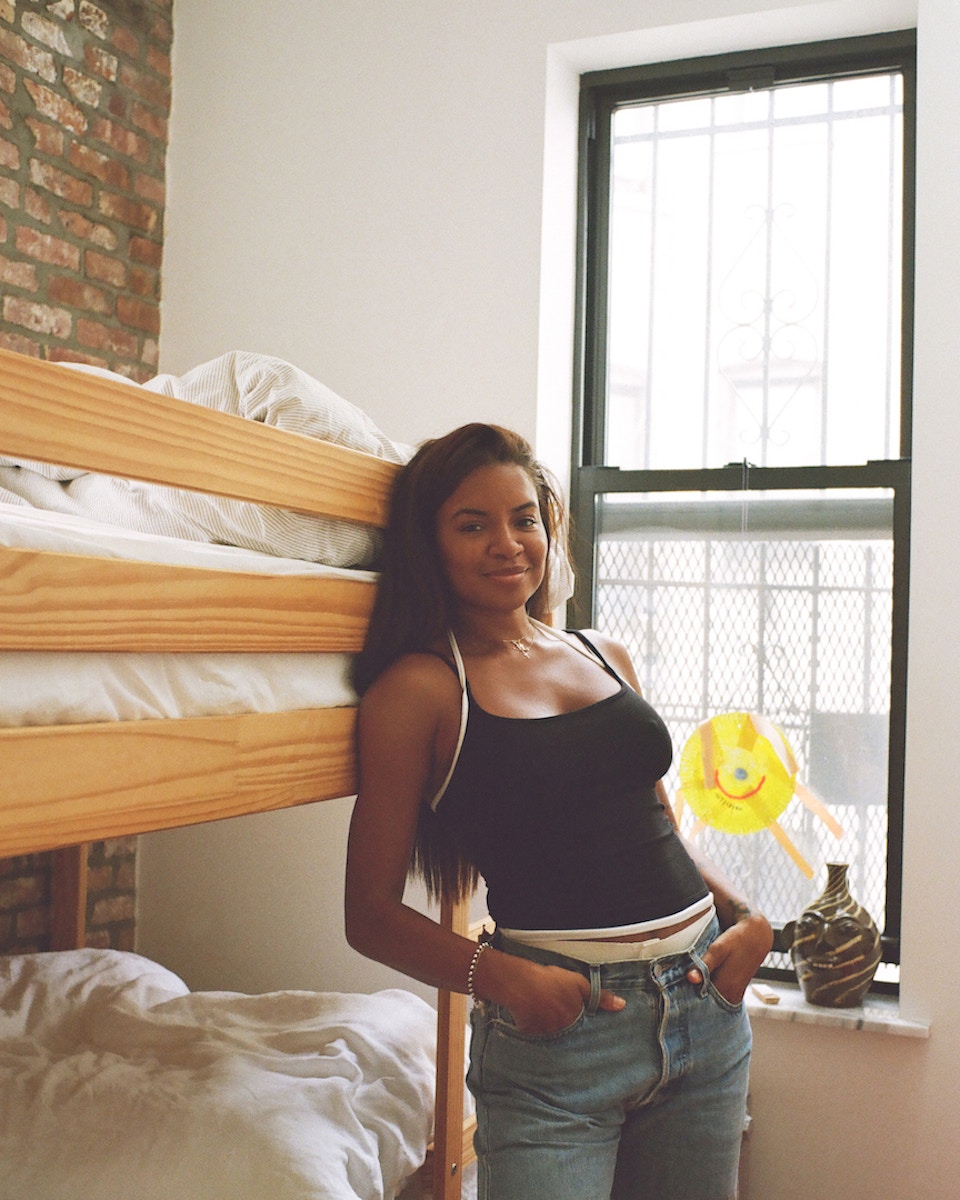
Something we all have in common = we all know nothing
I used to be so attached to certain ways of being and how I thought things should be. And now, I’m in this constant state of surrender. Surrendering to the unknown, to what I want for my child, and just learning to be as present as possible. I really don’t know anything.
It’s not always easy, especially living in a city like New York and working in industries where you're programmed to stay on the go and control your environment. But after everything I’ve experienced over the past six years, I’ve realized there’s nothing more powerful than being still and truly present.
I’m also learning that it’s not always about being introspective or doing “the work.” Play is just as important. I’m trying to bring more of that into my life, asking what brings me joy, what feels good, and making sure I actually reap the rewards of all the work I do. Whether it’s for myself, my child, or my community.
"I used to be so attached to certain ways of being and how I thought things should be. And now, I’m in this constant state of surrender. Surrendering to the unknown, to what I want for my child, and just learning to be as present as possible. I really don’t know anything."
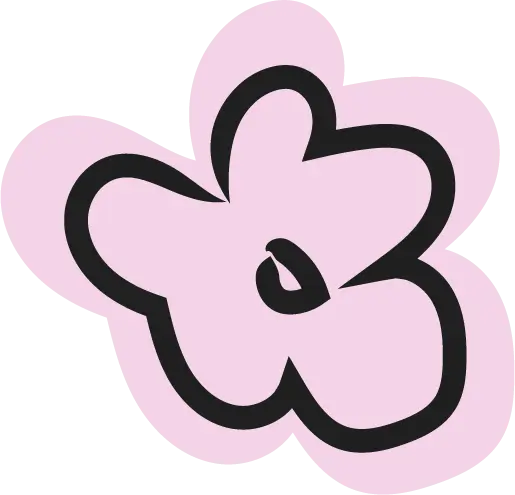
City mouse, country mouse
We lived upstate for about eight years when I was growing up, so I’ve always had a relationship with more natural environments. I recently learned that a lot of Native communities refer to it as living territories which I really prefer. The word nature creates this sense of separation, like it’s something outside of us, when really we’re all part of the same being. When we enter living territories, it’s not about observing nature, it’s about syncing with it. We’re living things too.
I feel more at ease being upstate. The city feels like a program to me. I’m here for a specific purpose, playing the game, engaging with a system that was built with a very specific intention. When I go back to a living territory, I’m reconnecting with myself and what’s naturally here.
And I see how my son responds to it. He’s so curious, so fearless. He’ll run into the forest in the middle of the night or in broad daylight, and while I sometimes panic, it’s also beautiful to witness. He was raised in the city but he has this deep, instinctual connection to the land. He feels safe. Like, I belong here. I’m fine here.
That kind of curiosity is so special. I’m hoping the duality he’s experienced becomes more of a singular experience. I would love to live somewhere surrounded by nature more full-time. I don’t think it’ll be upstate just because I’m not a big winter person. But that’s the plan: not to be in the city much longer.
That’s actually where most of my energy and work is going right now. And I’ve moved slower than I ever have before. Normally, when I have an idea, I hit the ground running and nothing gets in my way. But with this, I’ve been very intentional. I’ve been letting myself move through what I need to in order to make sure everything feels aligned.
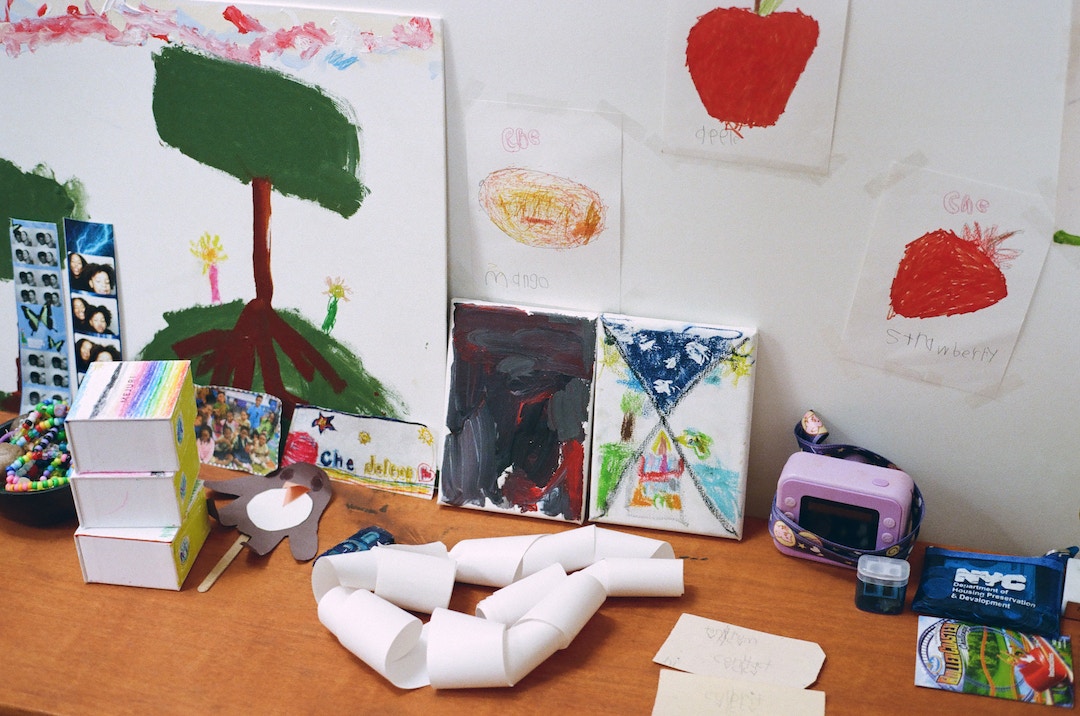
On co-parenting: “We’re always adapting”
Me and Che’s father didn’t plan this. When we were dating, we weren’t thinking we were going to have a child and start a family. And as individuals, we’re very different. We share some similarities, we’re both a bit unconventional, but Ché’s father is definitely more eccentric. He’s a free spirit in a way that balances me. I love that about him. He brings this fluidity that I don’t always have.
He’s also incredibly intentional. I think a lot of that comes from not having a father present in his own life. He’s really affectionate with Ché, physically and emotionally. My dad was very present growing up but he’s from a generation where physical touch just wasn’t the norm. So seeing Ché receive so much affection and affirmation is really beautiful.
Our whole parenting dynamic has been a huge learning experience. Neither of us has done this before, so we’re constantly figuring it out. It’s very much a response to who Ché is and what he needs. We do weekly check-ins based on what we’re seeing and what he might need more support with, where we can show up better.
We’re aligned in never wanting to impose anything on him. It’s very collaborative. And because we don’t live in the same household, we’ve had to get creative. One thing I never wanted Ché to miss out on is the experience of seeing his parents interact. So we make an effort to do activities together, things that let him witness that dynamic.
It’s all still a constant process, and it’s given me so much respect for single parents who do this without any kind of co-parenting support. I also feel really grateful. Our setup allows me to still be an individual. We alternate weeks so that when Ché is with his dad, who lives nearby and close to his school, I have time to focus on other areas of my life. And when Ché is with me, I can be fully present.
We still check in on the off weeks. I’ll stop by his school or visit if he wants. And now that he’s older, Ché really vocal about what works for him. We’ve tried different schedules, two weeks on, ten days here, seven days there, and recently he said he wants to go back to one week. We’re always adapting. He’s very clear about what he wants which helps guide us, too.
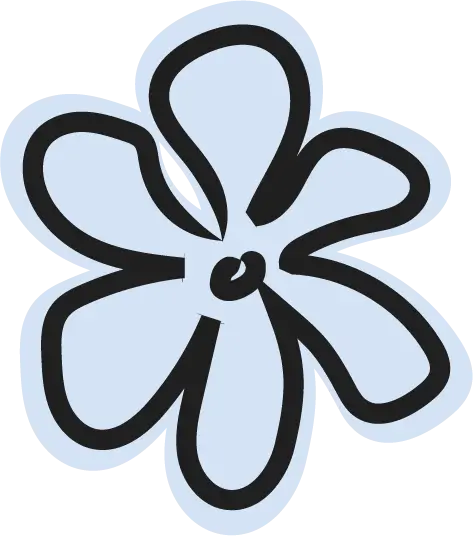
"One thing I never wanted Ché to miss out on is the experience of seeing his parents interact. So we make an effort to do activities together, things that let him witness that dynamic."
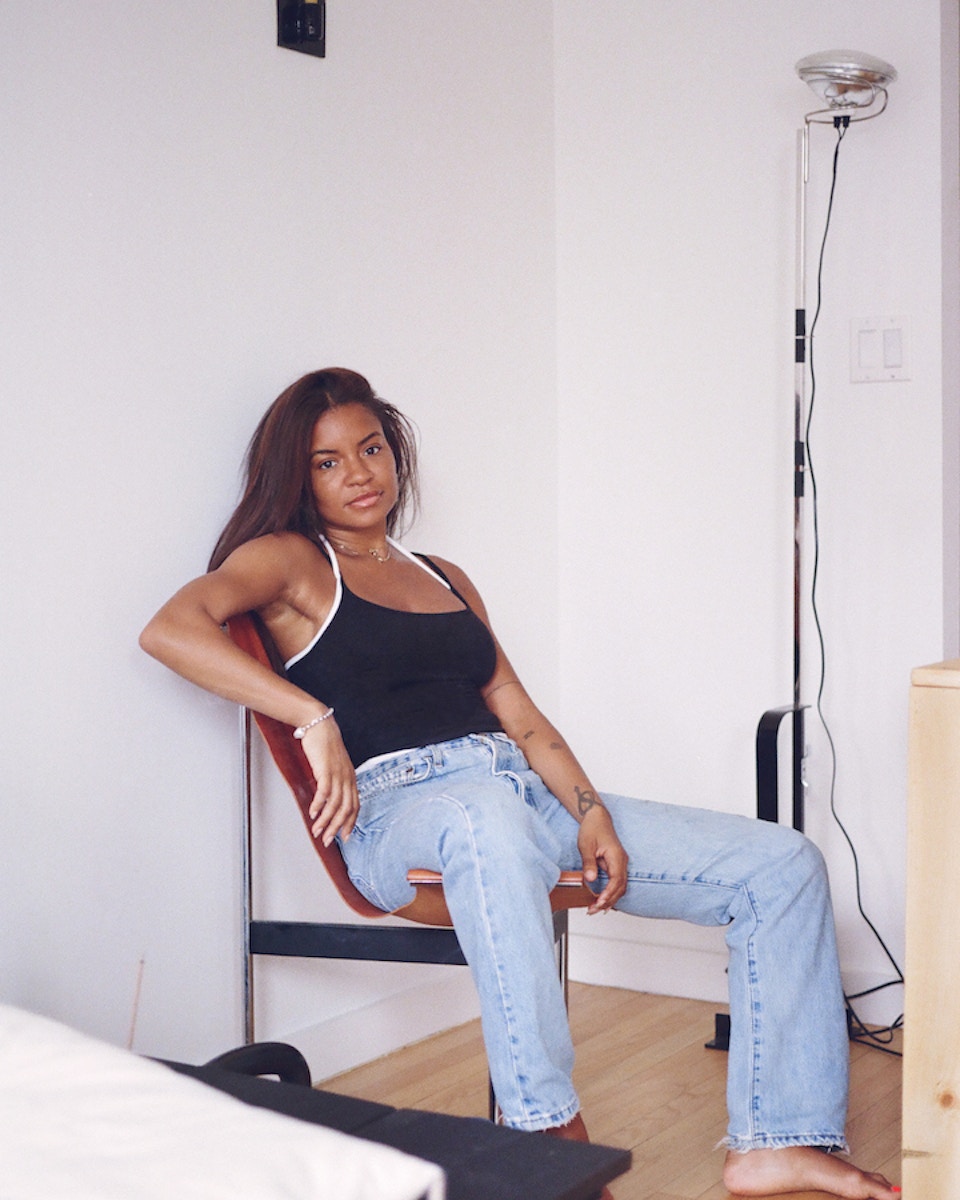
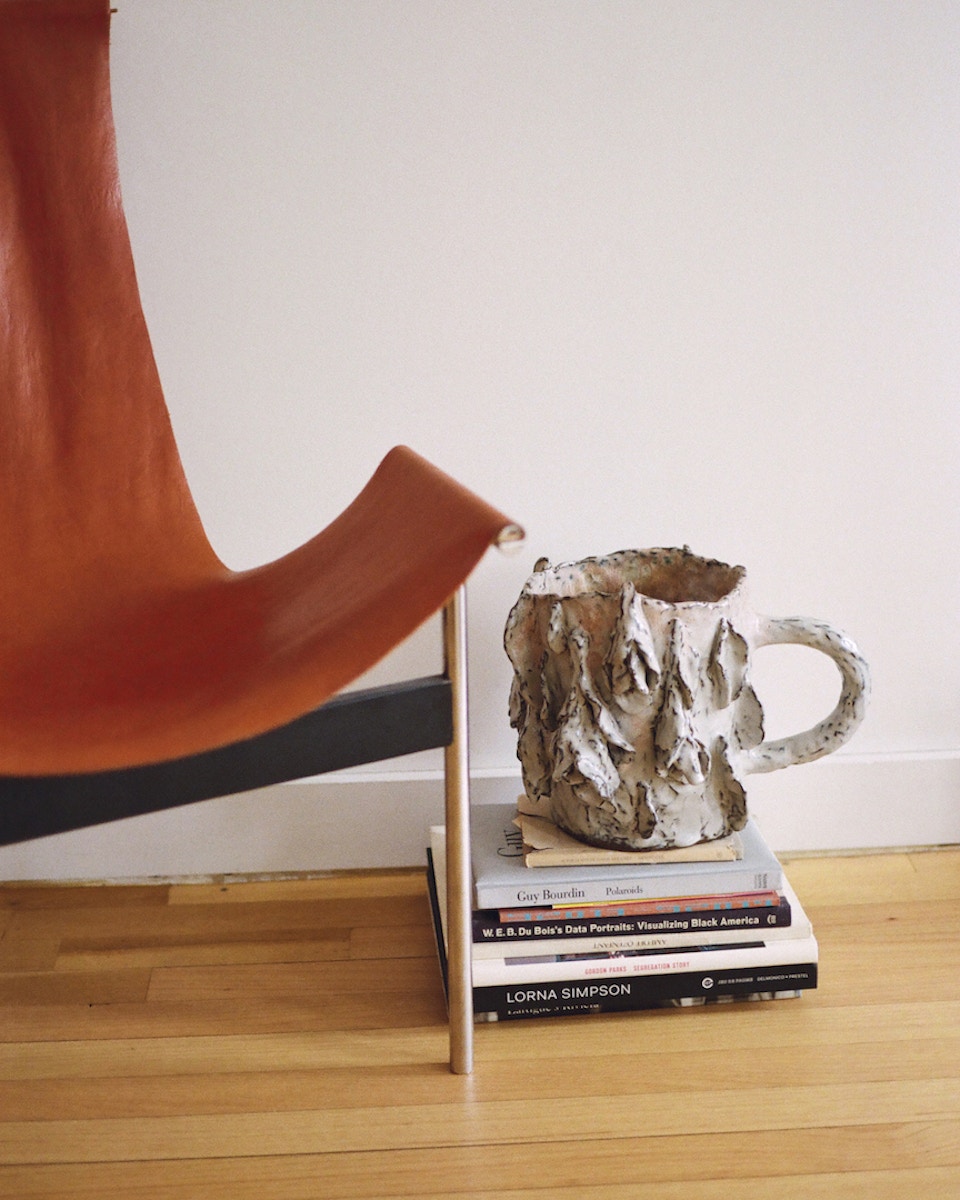
How do we raise boys who turn into men?
Having a son feels like a cosmic joke because I was essentially raised by my single mother. I have a relationship with my dad but he lives in Maryland. We don't see him as often. And so I'm being way more intentional about my relationships with men now, whether intimately or through friendship, because I want to have solid men in my life that can serve as guides for Ché outside of his father.
I don't know anything about being a man. I was having this conversation with someone who said, Your whole experience has been being raised by strong women. It was also almost said in this way where I should feel guilty. Frustrating since it’s not like I chose that.
I am really curious about the male experience. I almost feel bad for men because over the last few years they've been so ostracized; we have this generalized idea that all men are bad. A few men did some things that weren’t great and there was no sense of reform. If certain men are behaving in this way, what’s going on? And how do we work together to make sure these things aren’t happening?
I want Ché to feel supported and safe growing into his masculinity. And obviously I’m not a man, so I don’t know how to feel safe in masculinity, but I do want him to be surrounded by men who feel safe. He’s in this club, it’s called the Rights of Passage, and it’s basically this program that you do when you’re going through toddler age into youth, and they go through a series of exercises and activities that support them in understanding what it means to be growing as a young man. Resources like that are really helpful. And I do have really great guys that I know, and I’m always like, Can you come hang out?
"I'm being way more intentional about my relationships with men now, whether intimately or through friendship, because I want to have solid men in my life that can serve as guides for Ché outside of his father."
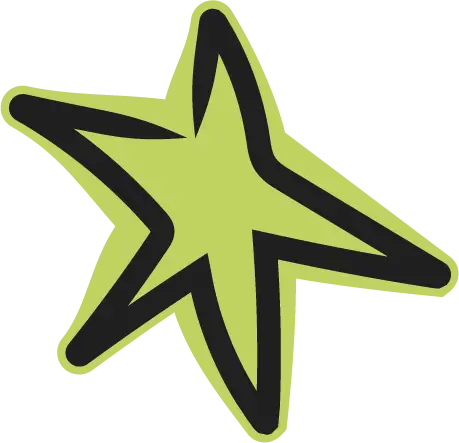
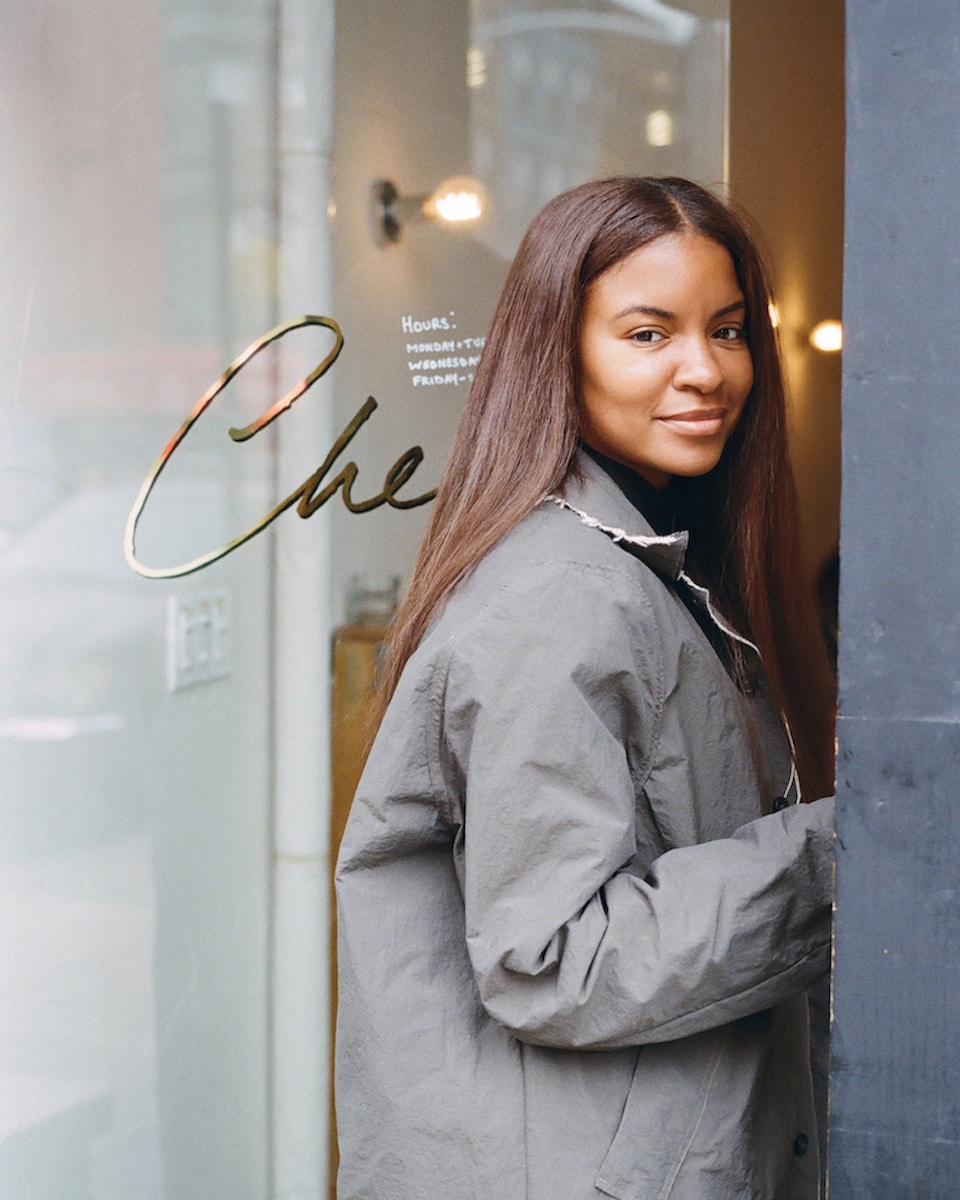
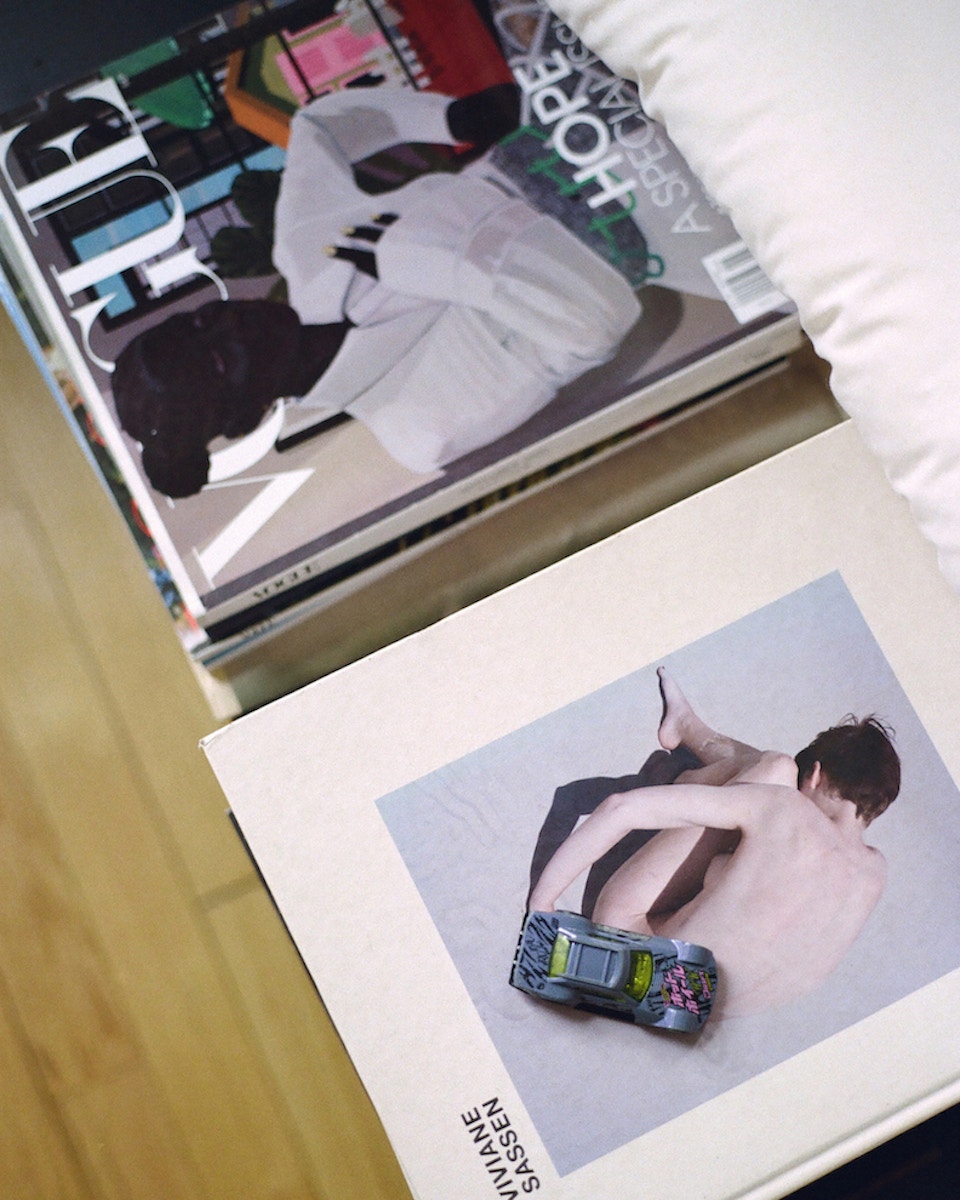
Without darkness, there is no light
Journaling is something I’ve always done and lately I’ve been doing a lot of affirmations. It can sound cliché or gimmicky but honestly I notice a real difference. And then throughout the day, I’ll get those affirmations back; someone on the street will say something kind, or something else will happen that feels like a confirmation.
I'm very spiritual. All human beings are. During COVID, I used to do meditations with Ché every night before bed and I’m slowly getting back into it. I’ll ask, Do you know how beautiful you are? Do you know how smart you are? How funny you are? That’s something I’m constantly doing: speaking life into him, reminding him of who he is.
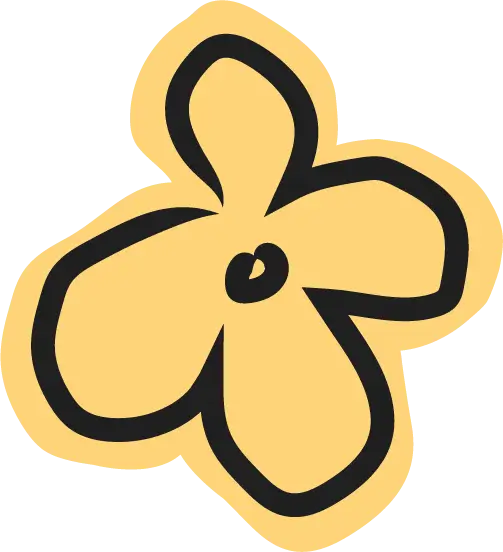
" I used to do meditations with Ché every night before bed and I’m slowly getting back into it. I’ll ask, Do you know how beautiful you are? Do you know how smart you are? How funny you are? That’s something I’m constantly doing: speaking life into him, reminding him of who he is."
I try to model those values. I love working out at home because he gets to see me doing it, and sometimes he’ll join in. That was something really influential in my childhood; my mom was always very into taking care of herself, working out, being well. That shaped my relationship with wellness. Ché has that from both sides. With his dad, they do a gratitude practice every morning during breakfast. They say three things they’re grateful for.
I also try to be as honest as possible. The last two years of my life were the first time I didn’t have a vision. I had allowed really negative energy into my life, and while that was hard, it ended up being a really powerful opportunity for me. I don’t think I fully understood the value of being in a relationship with both light and dark energy until I embraced it.
I’m finally back in a place where I feel ready to welcome new ideas, to step into this new version of myself, I can really see the duality, the difference, and I recognize that I had to go through certain lessons to understand my own power. We’re so often bombarded with the idea that we have to be positive all the time, but through those experiences, I learned how powerful it is to tap into your ability to envision what you want for your life and actually call it in. It was probably the first time in my life where I thought, Damn. I don’t know what’s next. And it didn’t feel good. But I just had to trust— God, the universe—wanted me to go through this for a reason